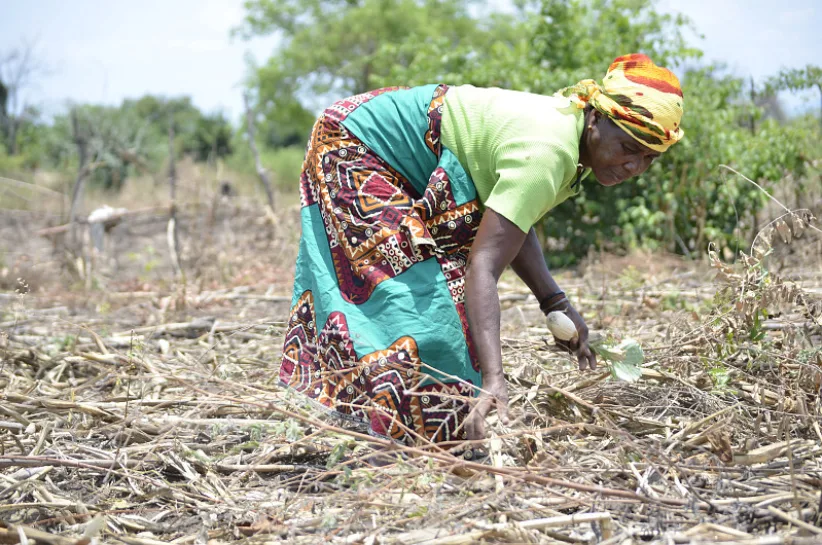Mozambique

Mozambique, located on the southeastern coast of Africa, is a country rich in natural resources. Despite recent economic growth, poverty remains widespread, and economic inequality is among the highest globally. The fair distribution of land and resources is hindered by political and economic power concentrated in the hands of the ruling elite. Faced with criticism, the government has responded with repressive measures against political activists, independent media, and civil society, in general.
Cultural and legal factors are contributing to the marginalization of women, who lack equal access to land rights, decision-making,g and benefits from natural resource exploration.
Approximately 70% of the population relies on subsistence farming, facing annual challenges as Mozambique is highly vulnerable to natural disasters as droughts, floods, and cyclones frequently causing significant agricultural losses, destruction of infrastructure, and displacement of communities. Challenges for small-scale farmers are further exacerbated by the lack of sufficient knowledge, tools, and infrastructures to adapt to the growing climatic changes and extreme weather events that affect drastically their production.
Northern Mozambique, and Cabo Delgado province in particular, have since 2017 been impacted by a violent conflict that has killed over 4,000 and displaced nearly a million people internally. This conflict hampers local development, displaces communities, erodes basic human rights, and creates an urgent need for humanitarian aid.
NPA in Mozambique
NPA began its programs in Mozambique in 1984, providing humanitarian support to refugees in Tete province. Our operations are now organized and led from the regional office in Maputo, with local offices in the provinces of Tete and Cabo Delgado.
We partner with civil society organizations and farmers' movements that actively engage in advocating for fair management and distribution of natural resources. Our most important partners are the local farmers' unions, which organize thousands of smallholder farmers to protect their access to land and basic rights. These unions play a crucial role in introducing climate-adaptive agricultural principles and techniques, helping farmers better prepare for climate change and extreme weather events. NPA also partners with NGOs that provide legal support to farmers' unions to acquire collective land tenure certificates to protect their constitutional rights
Dialogue initiatives are an important part of our programs in Mozambique. By fostering alliances between civil society, farmers' unions, natural resources management committees, and local communities, we have successfully persuaded the government to engage in strategic dialogues on land concessions related to extractive industries and industrial agriculture. This ensures that local communities retain access to their entitled land or receive just compensation.
In Cabo Delgado, NPA collaborates with partners to provide humanitarian support to internally displaced people. Activities include agricultural training, seed distribution, savings, and investment groups, building associations, and community dialogues.
Donors

The Government of Norway
.

Norwegian Embassy in Maputo
.

ECHO
European Commission Humanitarian Aid

SIDA
The Swedish International Development Cooperation Agency